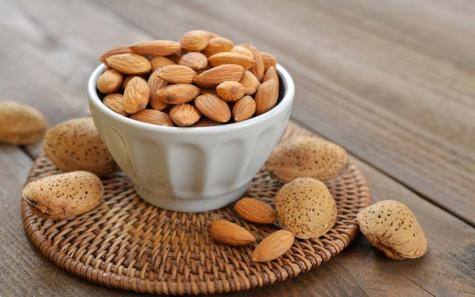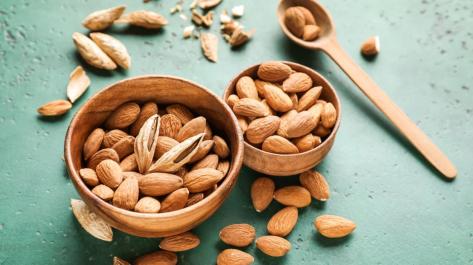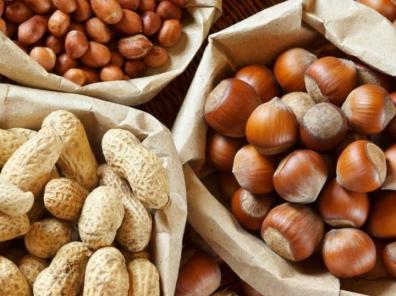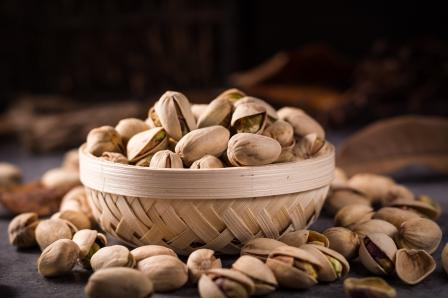In the realm of nuts, peanuts often find themselves in the spotlight due to their controversial reputation. Are they a nutritional powerhouse or a health menace? This article aims to unravel the truth behind peanuts, exploring their health benefits and potential concerns in a detailed and comprehensive manner. **Introduction to Peanuts: The Legume Disguised as a Nut** Peanuts, botanically classified as legumes, are commonly perceived as nuts due to their similar nutrient profile and culinary uses. They are rich in protein, healthy fats, vitamins, and minerals, making them a popular snack choice worldwide. Despite their name, peanuts share more botanical characteristics with beans and lentils than with tree nuts. **The Nutritional Profile of Peanuts: A Balancing Act of Good Fats and Essential Nutrients** Peanuts boast a diverse nutritional profile, making them a valuable addition to a balanced diet. They are a good source of protein, containing all nine essential amino acids required by the body. Additionally, peanuts are rich in monounsaturated and polyunsaturated fats, particularly oleic acid and linoleic acid, which contribute to heart health. Furthermore, peanuts pack a punch of essential vitamins and minerals, including vitamin E, folate, niacin, magnesium, and manganese. Vitamin E functions as a potent antioxidant, protecting cells from oxidative damage. Folate is crucial for DNA synthesis and cell growth, making it essential during pregnancy. Niacin supports proper nerve function and metabolism, while magnesium and manganese play pivotal roles in bone health and energy production, respectively.
.
 **Health Benefits of Peanuts: From Heart Health to Weight Management** Consuming peanuts in moderation offers an array of health benefits that can support overall well-being. Research suggests that the monounsaturated and polyunsaturated fats in peanuts may help lower LDL cholesterol levels, reducing the risk of cardiovascular diseases. The presence of resveratrol, a natural compound found in peanuts, has been linked to improved heart health by promoting healthy blood flow and reducing inflammation. Moreover, peanuts are a satiating snack option, thanks to their protein and fiber content. Including peanuts in a balanced diet may aid in weight management by promoting feelings of fullness and reducing overall calorie intake. The combination of protein, healthy fats, and fiber in peanuts also contributes to stabilized blood sugar levels, making them a suitable choice for individuals with diabetes or those looking to manage their blood sugar. **Peanuts and Nut Allergies: Navigating the Concerns** Despite their nutritional benefits, peanuts can pose a significant risk to individuals with peanut allergies. Peanut allergies are among the most common food allergies, affecting both children and adults. For individuals with peanut allergy, even a small amount of peanut protein can trigger severe allergic reactions, ranging from skin rashes and gastrointestinal symptoms to life-threatening anaphylaxis. As a result, it is crucial for individuals with peanut allergies to practice vigilant allergen avoidance and read food labels carefully. Cross-contamination in food processing facilities can also pose a risk, underscoring the importance of thorough ingredient checks and communication with food service providers.
**Health Benefits of Peanuts: From Heart Health to Weight Management** Consuming peanuts in moderation offers an array of health benefits that can support overall well-being. Research suggests that the monounsaturated and polyunsaturated fats in peanuts may help lower LDL cholesterol levels, reducing the risk of cardiovascular diseases. The presence of resveratrol, a natural compound found in peanuts, has been linked to improved heart health by promoting healthy blood flow and reducing inflammation. Moreover, peanuts are a satiating snack option, thanks to their protein and fiber content. Including peanuts in a balanced diet may aid in weight management by promoting feelings of fullness and reducing overall calorie intake. The combination of protein, healthy fats, and fiber in peanuts also contributes to stabilized blood sugar levels, making them a suitable choice for individuals with diabetes or those looking to manage their blood sugar. **Peanuts and Nut Allergies: Navigating the Concerns** Despite their nutritional benefits, peanuts can pose a significant risk to individuals with peanut allergies. Peanut allergies are among the most common food allergies, affecting both children and adults. For individuals with peanut allergy, even a small amount of peanut protein can trigger severe allergic reactions, ranging from skin rashes and gastrointestinal symptoms to life-threatening anaphylaxis. As a result, it is crucial for individuals with peanut allergies to practice vigilant allergen avoidance and read food labels carefully. Cross-contamination in food processing facilities can also pose a risk, underscoring the importance of thorough ingredient checks and communication with food service providers.
..
**Peanuts and Aflatoxins: Addressing Potential Contaminants** One of the primary concerns associated with peanuts is the presence of aflatoxins, naturally occurring toxins produced by certain molds that can contaminate peanuts during growth, harvesting, and storage. Aflatoxins have been classified as carcinogenic compounds, with long-term exposure posing a risk of liver cancer and other health issues. To mitigate the risk of aflatoxin exposure, proper agricultural practices, storage conditions, and food processing techniques are crucial. Regulatory bodies worldwide enforce strict guidelines to limit aflatoxin levels in peanuts and peanut products, ensuring consumer safety. Roasting, blanching, and other processing methods can also help reduce aflatoxin contamination in peanuts. **Cooking Methods and Peanut Products: Maximizing Nutritional Value** The way peanuts are prepared and processed can impact their nutritional content and overall health benefits. While raw peanuts are a nutrient-dense option, roasted peanuts are a popular choice due to their enhanced flavor and crunchy texture. Dry-roasting peanuts without added oils or salts can preserve their nutritional profile while adding a delightful savoriness. Peanut butter, a beloved peanut product, offers a convenient and versatile way to incorporate peanuts into various dishes. Opting for natural peanut butter without added sugars or hydrogenated oils ensures a healthier choice. Peanut flour, peanut oil, and peanut-based snacks are other innovative ways to enjoy the benefits of peanuts in different forms.
…
 **Sustainable Peanut Farming: Supporting Environmental Conservation** The cultivation of peanuts, like other crops, has environmental implications that warrant attention. Sustainable peanut farming practices focus on minimizing water usage, reducing chemical inputs, and promoting soil health to ensure long-term agricultural sustainability. Crop rotation, integrated pest management, and soil conservation techniques are integral components of sustainable peanut production. By supporting responsibly sourced peanuts and products, consumers can contribute to environmental conservation efforts and encourage sustainable agricultural practices. Certifications such as Rainforest Alliance and Fair Trade provide assurance of ethical sourcing practices, benefiting both farmers and the environment. **Incorporating Peanuts into a Healthy Diet: Practical Tips and Recipes** For individuals looking to reap the health benefits of peanuts, incorporating them into a balanced diet can be both delicious and straightforward. Here are some practical tips for including peanuts in your meals and snacks: 1. Snack smartly with a handful of unsalted roasted peanuts or peanut butter on apple slices. 2. Add chopped peanuts to salads, stir-fries, and grain bowls for an added crunch and nutty flavor. 3. Enjoy a nutritious breakfast by topping Greek yogurt with peanut butter, banana slices, and a sprinkle of cinnamon. 4. Whip up a homemade peanut sauce for dipping vegetables or drizzling over grilled meats. 5. Indulge in a classic peanut butter and jelly sandwich using whole grain bread and natural peanut butter.
**Sustainable Peanut Farming: Supporting Environmental Conservation** The cultivation of peanuts, like other crops, has environmental implications that warrant attention. Sustainable peanut farming practices focus on minimizing water usage, reducing chemical inputs, and promoting soil health to ensure long-term agricultural sustainability. Crop rotation, integrated pest management, and soil conservation techniques are integral components of sustainable peanut production. By supporting responsibly sourced peanuts and products, consumers can contribute to environmental conservation efforts and encourage sustainable agricultural practices. Certifications such as Rainforest Alliance and Fair Trade provide assurance of ethical sourcing practices, benefiting both farmers and the environment. **Incorporating Peanuts into a Healthy Diet: Practical Tips and Recipes** For individuals looking to reap the health benefits of peanuts, incorporating them into a balanced diet can be both delicious and straightforward. Here are some practical tips for including peanuts in your meals and snacks: 1. Snack smartly with a handful of unsalted roasted peanuts or peanut butter on apple slices. 2. Add chopped peanuts to salads, stir-fries, and grain bowls for an added crunch and nutty flavor. 3. Enjoy a nutritious breakfast by topping Greek yogurt with peanut butter, banana slices, and a sprinkle of cinnamon. 4. Whip up a homemade peanut sauce for dipping vegetables or drizzling over grilled meats. 5. Indulge in a classic peanut butter and jelly sandwich using whole grain bread and natural peanut butter.




Your comment submitted.